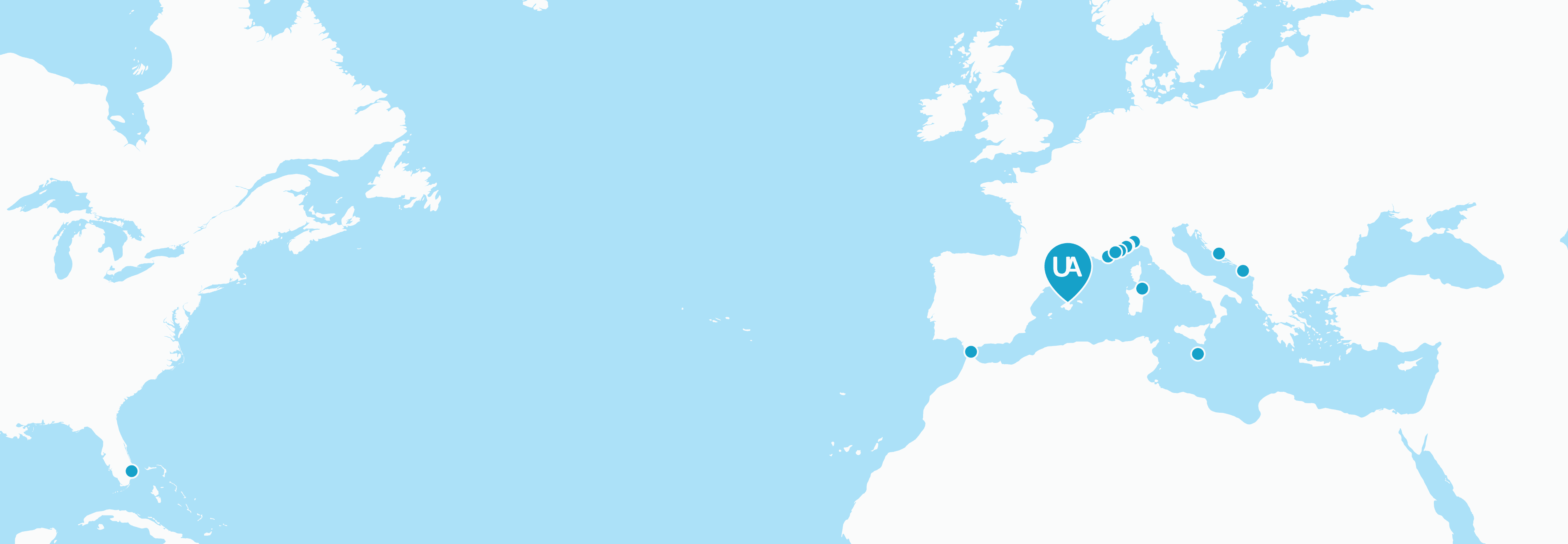10th Nov 2020
Life after yachting: interview with Tom Jackson from Honest Ocean
During his time at sea as Superyacht crew, Tom Jackson saw first hand just how much plastic ends up as ocean waste. Tom spent most of his time on board charter yachts cruising the South Pacific. He quickly learned that Indonesia is the second-largest contributor of plastic pollution in the oceans, after China.
Every day in Indonesia, approximately 200 tons of plastic waste is produced of which 81% can’t be sorted nor recycled. Such statistics are difficult to comprehend, and the challenge can feel insurmountable. Not for Tom. He joined forces with fellow entrepreneur Dom Desmond to launch Honest Ocean, a social enterprise dedicated to recycling ocean waste plastic. We chatted with Tom to learn more.
How long did you spend researching your idea?
When I was working onboard, I learned that Indonesia doesn’t have the infrastructure in place to collect, sort and recycle plastic. Knowing this and the scale of the plastic waste problem, I knew I had to do something. Before launching Honest Ocean* 12 months ago, I spent 2–3 years researching a viable approach that would help address the issue as well as high unemployment within small communities in Indonesia.
What exactly does Honest Ocean do and why is it a social enterprise?
Local communities need the necessary infrastructure to turn the problem into a solution and a sustainable business model. That’s why we partner with community groups to retrieve plastic waste in and bound for the ocean. Our sorting team separates the plastic by type, colour and size, which is then hot-washed and compressed into a shredded or pellet format. From there, it’s ready to be sent to manufacturers where the plastic will start its new life over again!
An important part of our collection process is that we also offer traceability to clients of where and what village the waste was collected from. Think of it like a road map from ocean or riverbank to customers inside a retail store. End consumers can then understand what they are contributing to when they purchase a product made from recycled plastic waste. And the best part is our 360 plastic supply chain adds a value to waste plastic, providing a stable income for locals and their families. This is a key reason for why we operate as a social enterprise. We want to help set up local communities for a lifetime of work rather just a few months’ worth of money via a donation.
We understand you’re looking to set up in the Philippines and Vietnam within the next 4–5 years. Do you have other countries in mind for the future?
We want to supply the tools for local communities to build sustainable businesses. Right now, we are looking at purchasing and supplying shredders for communities in Indonesia, so that they can manage more of the process within their villages. We’re also working with them to find local recycling partners to further expand their reach. After that, we’ll focus our efforts on the Philippines and Vietnam who are the third and fourth worst affected areas in terms of plastic pollution respectively. Our long-term vision is to move into India and South Africa as well as countries within South America. It’s a grand plan but we’re confident we can make a difference.
If you had to describe Honest Ocean in three words what would they be?
Rescue. Recycle. Reuse
Back to yachting: what do you wish someone had told you before starting out in the Superyacht industry?
That charter trips are full-on! I knew I’d be busy while working onboard but I wasn’t aware of exactly what that meant. Burnout is real in yachting and there’s nothing wrong with taking a season off to get you back on track if you need it. Take care of your mental health, which will help you take care of the rest.
What do you wish you’d done before stopping to work onboard, to help with your transition back onshore?
I wish I’d had a solid, bullet-proof plan before I left the industry. Someone recently shared with me this quote:
‘An idiot with a plan is better than a genius without one.’
I like it and have adopted it for myself! While I did start working on my first business 6 months before moving back onshore, my plan wasn’t as developed as I’d hoped. Also, at the time, I had no idea there were financial advisers working especially with yacht crew. I would definitely have sought financial advice had I known it was available.
How can Superyacht crew help get the word out about Honest Ocean?
First, please spread the word about our efforts amongst your fellow crew, your friends, your family. The greater awareness there is of plastic pollution, the more chance there is of people taking positive steps to help tackle the problem. As a social enterprise, we welcome donations and in return offer rewards to our supporters. The best part of donating to social enterprises such as Honest Ocean is knowing you’ll be making a positive contribution to something that has long-lasting impacts on the communities we’re helping.
To learn more about their mission and how you can help, visit the Honest Ocean website.
*Honest Ocean originally launched under the name Waves not Waste



